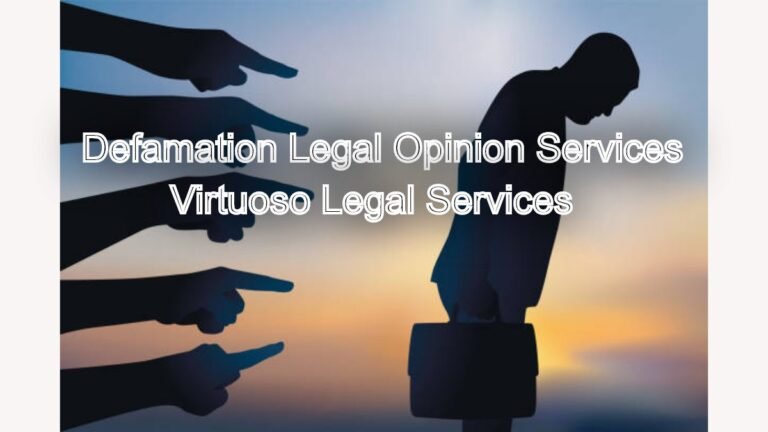Fair Representation: Criminal Litigation Legal Experts
Fair Representation: Facing criminal charges is a daunting experience. Indeed, the stakes are incredibly high. A person’s liberty, reputation, and future hang in the balance. The legal system can seem complex. It can also feel overwhelming. Therefore, securing expert legal representation is not merely beneficial. It is absolutely essential. A skilled criminal defense lawyer navigates the intricacies of the law. They protect a client’s rights. They also fight tirelessly for a fair outcome. Virtuoso Legal Services – Expert Legal Solutions 24×7 provides unparalleled legal expertise. We ensure every individual receives the robust defense they deserve. We stand as a beacon of justice in challenging times.
Fair Representation: Criminal Litigation Legal Experts: Virtuoso Legal Services
Understanding the Realm of Criminal Litigation
Firstly, criminal litigation involves legal proceedings initiated by the state. These proceedings are brought against an individual or entity. The state alleges the commission of a crime.
1. Nature of Criminal Offences
Criminal offences are broadly categorized. They include cognizable offences and non-cognizable offences. For instance, murder, robbery, and assault are generally cognizable. Police can arrest without a warrant in such cases. Conversely, defamation or cheating are typically non-cognizable. They require a magistrate’s order for arrest. Furthermore, offenses are also classified by their severity. They range from misdemeanors to felonies (though these terms are more common in some other jurisdictions, Indian law uses classifications like bailable/non-bailable, compoundable/non-compoundable). Consequently, understanding the nature of the charge is the first step.
2. The Role of the Prosecution
The prosecution represents the state. Their primary role is to prove the accused’s guilt beyond a reasonable doubt. For instance, they present evidence, call witnesses, and cross-examine defense witnesses. Consequently, their efforts aim to secure a conviction.
3. The Rights of the Accused
The Indian Constitution guarantees fundamental rights to every accused person. These include the right to legal counsel. They also include the right to remain silent. Furthermore, they ensure protection against self-incrimination. For instance, the accused has the right to a fair trial. They also have the right to be presumed innocent until proven guilty. Consequently, a strong defense ensures these rights are upheld throughout the process.
The Stages of Criminal Litigation
Secondly, criminal litigation follows a structured process. Each stage requires specific legal expertise.
1. Investigation Stage
This initial phase involves law enforcement. Police gather evidence. They record statements. They also conduct searches. For instance, a defense lawyer can advise clients during interrogation. They can also assist with bail applications if an arrest occurs. Consequently, proactive legal involvement during investigation can significantly impact the case’s direction.
2. Filing of FIR and Arrest
The process often begins with the filing of a First Information Report (FIR). This document officially records the complaint. For instance, if the offense is cognizable, an arrest may follow. Consequently, immediate legal action for anticipatory bail or regular bail becomes critical.
3. Bail Application
Upon arrest, securing bail is often the most immediate concern. Bail allows release from custody while awaiting trial. For instance, lawyers argue for bail based on factors like the nature of the offense, criminal history, and flight risk. Consequently, successful bail applications ensure liberty during the long legal process.
4. Charge Sheeting
After investigation, police file a charge sheet (or final report) with the court. This document outlines the charges against the accused. For instance, the court then takes cognizance of the offense. Consequently, the framing of charges initiates the formal trial proceedings.
5. Trial Stage
The trial is the core of criminal litigation. Both prosecution and defense present their cases. For instance, the prosecution leads with examination of its witnesses (examination-in-chief). The defense then conducts cross-examination. Similarly, the defense presents its own witnesses. Consequently, compelling arguments and evidence presentation are paramount here.
6. Arguments and Judgment
After evidence presentation, both sides make final arguments. They summarize their cases. They also highlight legal points. For instance, the judge then delivers a judgment. This judgment declares guilt or acquittal. Consequently, a favorable judgment depends on the strength of the legal arguments.
7. Sentencing
If convicted, the court proceeds to sentencing. This involves determining the punishment. For instance, the defense lawyer can present mitigating circumstances. They can argue for a lesser sentence. Consequently, effective advocacy influences the severity of the penalty.
Key Legal Terms and Concepts
Thirdly, understanding specific legal terminology is crucial for comprehending criminal litigation.
1. Mens Rea and Actus Reus
These are fundamental concepts. Mens Rea refers to the “guilty mind” or criminal intent. Actus Reus refers to the “guilty act” or the physical act of committing a crime. For instance, both must generally be proven for a conviction. Consequently, the prosecution must establish both elements.
2. Burden of Proof
In criminal cases, the burden of proof lies solely with the prosecution. They must prove guilt. For instance, the standard of proof is beyond a reasonable doubt. This is a very high standard. Consequently, any reasonable doubt leads to acquittal.
3. Presumption of Innocence
Every accused person is presumed innocent until proven guilty. This is a bedrock principle of criminal jurisprudence. For instance, the defense does not need to prove innocence. Consequently, the prosecution must overcome this presumption.
4. Habeas Corpus
A writ of Habeas Corpus is a powerful legal remedy. It challenges unlawful detention. For instance, if someone is illegally detained, a lawyer can petition the High Court or Supreme Court. This demands their production before the court. Consequently, it protects individual liberty.
5. Plea Bargaining
Plea bargaining involves negotiations between the prosecution and defense. The accused might agree to plead guilty to a lesser charge. For instance, they might receive a reduced sentence. Consequently, it can offer a way to resolve cases without a full trial, subject to court approval.
6. Acquittal and Conviction
An acquittal means the accused is found not guilty. They are legally free. A conviction means the accused is found guilty. They face punishment. For instance, an acquittal restores liberty. A conviction leads to sentencing. Consequently, these terms define the outcome of a trial.
The Expertise of Criminal Litigation Legal Experts
Fourthly, a specialist criminal defense lawyer brings invaluable expertise to the table.
1. In-depth Knowledge of Criminal Laws
Expert lawyers possess profound knowledge of the Indian Penal Code (IPC), Code of Criminal Procedure (CrPC), and other special statutes. For instance, they understand the nuances of specific offenses. They also know the procedural requirements. Consequently, this deep knowledge is essential for effective defense.
2. Strategic Case Building
Lawyers meticulously analyze evidence. They identify weaknesses in the prosecution’s case. They also build a strong defense strategy. For instance, they prepare for cross-examination of prosecution witnesses. They also identify defense witnesses. Consequently, a well-crafted strategy is critical for success.
3. Skilled Advocacy
Effective courtroom advocacy is paramount. Lawyers present arguments compellingly. They persuade the judge or jury (where applicable). For instance, they make forceful submissions during bail hearings. They also argue eloquently during trials. Consequently, strong advocacy can sway the outcome.
4. Protection of Constitutional Rights
A key role is ensuring the client’s fundamental rights are protected. This includes the right to fair trial. It also ensures protection against illegal arrest or detention. For instance, they can file petitions for Habeas Corpus or challenge evidence obtained illegally. Consequently, vigilant protection of rights safeguards liberty.
5. Negotiation and Settlement
When appropriate, lawyers engage in plea bargaining or other forms of negotiation. They seek the best possible outcome for their client. For instance, this might involve reducing charges or penalties. Consequently, skilled negotiation can lead to more favorable resolutions outside of trial.
6. Appellate Practice
If a conviction occurs, expert lawyers pursue appeals in higher courts. This includes the High Courts and the Supreme Court of India. For instance, they challenge errors of law or fact in the lower court’s judgment. Consequently, skilled appellate advocacy provides a crucial last line of defense.
Virtuoso Legal Services – Expert Legal Solutions 24×7 Advantage
Virtuoso Legal Services stands as a premier choice for criminal litigation. Our firm comprises dedicated and highly experienced criminal defense lawyers. We are committed to providing robust and ethical representation.
1. Unwavering Commitment
We are relentlessly committed to our clients’ defense. We believe in everyone’s right to a fair trial. For instance, we invest fully in each case. We leave no stone unturned in preparing a defense. Consequently, our dedication inspires client confidence.
2. Experienced Litigators
Our team consists of seasoned trial lawyers. They have extensive experience in all criminal courts. For instance, they are adept at handling complex cases. They are comfortable arguing in high-pressure environments. Consequently, their courtroom prowess is a significant asset.
3. 24×7 Availability
Criminal matters can arise at any time. Our services are available 24×7. For instance, we offer immediate legal assistance during arrests. We provide urgent advice during critical junctures. Consequently, timely intervention can make a crucial difference.
4. Strategic Defense Planning
We develop sophisticated defense strategies tailored to each unique case. We meticulously analyze every piece of evidence. For instance, we anticipate prosecution moves. We identify legal loopholes. Consequently, our strategic approach maximizes chances of success.
5. Client-Centric Approach
We prioritize clear communication and compassionate support. We keep clients fully informed at every step. For instance, we explain complex legal concepts simply. We address all concerns patiently. Consequently, our client-focused philosophy builds trust and understanding.
Frequently Asked Questions
Expert legal representation is absolutely essential because criminal charges carry incredibly high stakes, impacting liberty, reputation, and future. A skilled lawyer navigates the complex legal system, protects your fundamental rights of the accused (like the right to legal counsel), and tirelessly fights for a fair outcome.
Upon arrest or the filing of a First Information Report (FIR), a lawyer’s immediate priority is to provide advice during interrogation and assist with bail applications. They work quickly to secure your release from custody, ensuring your liberty while awaiting trial, and begin building your defense.
In criminal cases, the entire burden of proof lies solely with the prosecution. They must prove the accused’s guilt beyond a reasonable doubt. This is a very high standard, meaning any significant doubt about guilt should lead to an acquittal. The accused is presumed innocent until proven guilty.
The trial stage is where both the prosecution and the defense present their cases. This involves the examination-in-chief and cross-examination of witnesses, presentation of evidence, and legal arguments. The aim is for the court to hear all facts and apply the law to deliver a just judgment of acquittal or conviction.
Virtuoso Legal Services offers unparalleled legal expertise, characterized by unwavering commitment and experienced litigators. They provide 24×7 availability for immediate assistance, develop strategic defense planning tailored to each case, and maintain a client-centric approach to ensure compassionate support and clear communication throughout the complex criminal litigation process.
Conclusion
Facing criminal charges is a profound challenge. It requires the expertise of dedicated legal professionals. Criminal litigation is a complex field. It involves intricate procedures and nuanced legal principles. From the initial FIR and bail application to the full trial stage and potential appeals, every step demands meticulous attention and strategic advocacy. Virtuoso Legal Services – Expert Legal Solutions 24×7 offers unparalleled legal representation. By providing unwavering commitment, experienced litigators, 24×7 availability, and a client-centric approach, our firm ensures fair representation. We uphold the rights of the accused. We tirelessly work to achieve justice. Partnering with expert criminal defense lawyers is not just a choice; it is a fundamental requirement for safeguarding one’s liberty and ensuring a just outcome.
Read More
- Justice Prevails: Criminal Cases Legal Opinions
- Ensure Legal Compliance: Court Order Deed Services
- Celebrate Love Legally: Court Marriage Legal Opinion Services
- Safeguarding Business Interests: Corporate and Commercial Law Specialists
- Protecting Creative Works: Copyright Registration Services
- Department of Justice, Ministry of Law & Justice
![Virtuoso Legal Services [Best Legal Opinion Services 24×7]](https://legalopinion.org.in/wp-content/uploads/2023/09/cropped-logo.png)






